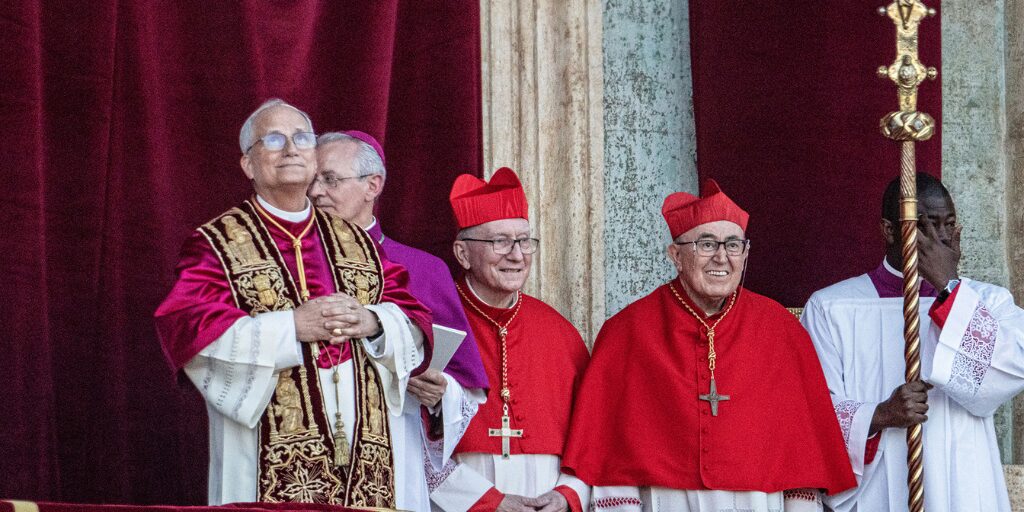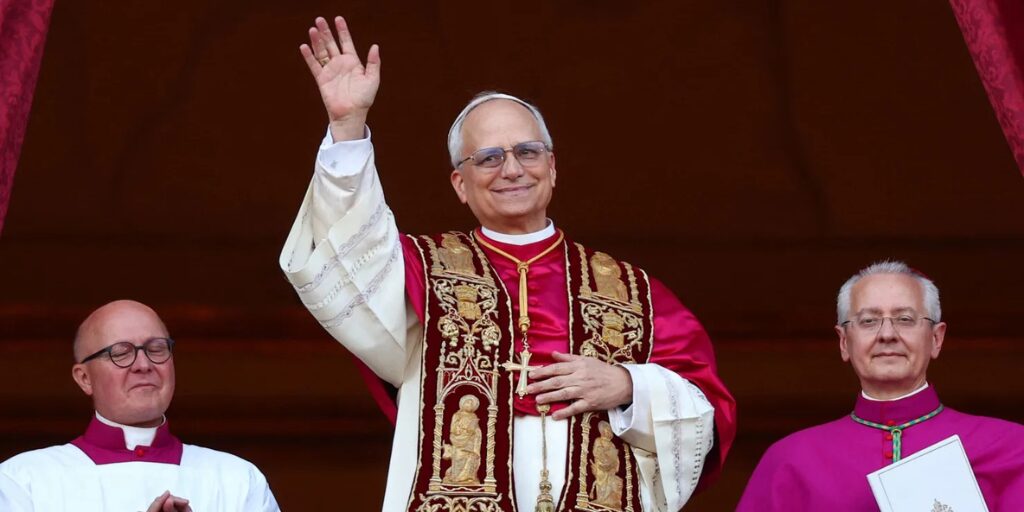When it comes to the financial situation of the Pope, many people are curious about whether he receives a salary like most traditional jobs. The truth is, the Pope does not earn a salary in the conventional sense. His role is more about spiritual leadership than financial gain, and the Vatican covers all his expenses. Let’s explore how the Pope’s finances work and what that means for his lifestyle and responsibilities.
Key Takeaways
-
The Pope does not receive a traditional salary; his expenses are covered by the Vatican.
-
Pope Francis had openly stated he did not get paid, relying on the Vatican for his needs.
-
He lived a simple lifestyle, choosing modest accommodations over luxurious ones.
-
The Vatican’s funds come from donations, including contributions from Catholics worldwide.
-
After leaving office, former Popes receive a pension and continued support from the Vatican.
Understanding The Pope’s Financial Situation
The Nature Of The Papacy
So, the Pope’s situation is a bit different than your average job. He doesn’t exactly get a salary in the way most people understand it. Instead, the Vatican takes care of his needs. It’s more like he’s provided for, rather than paid a set amount. This arrangement reflects the unique role of the papacy, which is more about spiritual leadership than financial gain. It’s an interesting setup, and it definitely sets him apart from other world leaders.
Vatican Support For The Pope
What does “taking care of his needs” actually mean? Well, the Vatican steps in to cover pretty much everything. Think housing, food, travel, and anything else the Pope needs to carry out his duties. The Holy See’s governance ensures that the Pope’s daily expenses are handled without him needing to worry about personal finances. It’s all part of the Vatican’s responsibility to support the Pope in his role as the head of the Catholic Church. This support system allows him to focus on his spiritual and pastoral duties.
Personal Expenses Covered By The Holy See
Let’s break down those expenses a bit more. The Holy See covers a wide range of things, ensuring the Pope can live and work without financial concerns. This includes:
- Accommodation: The Pope lives in Vatican City, and his housing is provided.
- Food: Meals are taken care of, ensuring he has what he needs.
- Travel: Whether it’s local transportation or international trips, the Vatican foots the bill.
- Staff: The people who assist the Pope in his daily tasks are also compensated by the Vatican.
Basically, if it’s something the Pope needs for his role, the Vatican handles it. It’s a comprehensive support system designed to let him focus on leading the Church.
The Pope’s Lifestyle Choices
Living Arrangements
Instead of living in the Apostolic Palace, which is quite grand, Pope Francis chose a more modest residence. He resided in Casa Santa Marta, a guesthouse within the Vatican. This decision reflected a desire for a less formal and more communal living environment. It was a pretty big change from how things used to be and sent a message about his priorities. The Vatican provides for the pontiff’s needs, from housing, food, transportation and other expenses in the form of stipends and allowances.
Emphasis On Simplicity
Pope Francis was known for his commitment to a simple lifestyle. He was often seen wearing simple attire and had been vocal about the need for the Church to focus on serving the poor. This emphasis on simplicity extended to many aspects of his daily life, from his meals to his transportation. It was a deliberate choice that set him apart from some of his predecessors. Cardinal Robert Prevost who has been elected as the new Pope Leo XIV today May 8, 2025, will now have a more simplistic lifestyle.
Declining Luxurious Benefits
Popes have access to a number of resources. They have access to cars as well as other perks related to their position. Pope Francis declined many of the luxurious benefits typically associated with the papacy. He didn’t use a fancy car, and he was known to carry his own briefcase. This rejection of extravagance was a consistent theme in his papacy, and it’s something that resonated with many people.
Sources Of Funding For The Papacy
Vatican Fund Overview
The Vatican’s financial structure is, to put it mildly, complex. It’s not like a regular country with taxes and all that. The Holy See, which governs Vatican City, gets its money from a mix of donations, investments, and income from its own activities. The CIA’s World Factbook estimated that back in 2013, their revenues were around $315 million, while expenditures hit $348 million. It’s important to remember that these numbers are estimates, as the Vatican doesn’t exactly publish detailed financial reports. It’s more like a really old, really big non-profit than a corporation. Roman Catholic Church finances are interesting.
Role Of Donations
Donations play a huge role in keeping the Vatican afloat. These come from Catholics all over the world, from small individual contributions to larger sums from wealthy benefactors and organizations. These donations are crucial for funding the Church’s various activities, from maintaining historical buildings to supporting charitable works. It’s a global effort, with people giving what they can to support the Church’s mission. It’s also worth noting that the Vatican has faced financial challenges, leading to measures like salary cuts for high-ranking officials. It’s a constant balancing act to manage resources effectively.
Peter’s Pence Contributions
Peter’s Pence is a specific type of donation collected from Catholics worldwide. It’s basically an annual collection that goes directly to the Pope. The Michigan Journal of Economics says this brings in about $27 million each year. The money is used for the Pope’s charitable works, helping those in need, and supporting the Vatican’s operations. The biggest contributions come from the United States, Germany, and Italy. It’s a tangible way for Catholics to support the Pope’s mission and How do they decided who becomes the Pope? is a question many ask. It’s a tradition that goes back centuries, showing the global reach and support for the papacy.
Pope Francis And His Financial Decisions
Personal Allowance Details
Instead of a salary, Pope Francis received an allowance from the Vatican to cover his personal needs. This included things like housing, food, and transportation. The specifics of this allowance weren’t publicly detailed, but it was understood to be managed in a way that supported his simple lifestyle. It was a far cry from the image of a lavish papal lifestyle that some might imagine. The Vatican ensured his needs were met without providing a formal salary.
Impact Of Financial Cuts
Pope Francis was known for implementing financial reforms within the Vatican. These cuts aimed to address the Vatican’s financial challenges, including a growing operating deficit and concerns about the pension fund. These decisions reflected a broader effort to ensure financial responsibility and transparency within the Church. Some key areas of focus included:
-
Reducing operational costs
-
Improving investment strategies
-
Increasing transparency in financial dealings
Post-Papacy Financial Arrangements
Pension For Retired Popes
When a pope retires, like Pope Benedict XVI did in 2013, financial arrangements are made to support him. These arrangements typically include a pension and continued Vatican support. The specifics can vary, but the goal is to ensure the former pope’s needs are met. It’s worth noting that Pope Francis ordered salary cuts for cardinals and other high-ranking Vatican officials in 2021, reflecting a commitment to budget austerity.
Living Conditions After Papacy
Retired popes usually reside within the Vatican. Benedict XVI, for example, lived in the Mater Ecclesiae Monastery until his death. The Vatican provides housing and covers all expenses, ensuring a comfortable and secure living environment. The emphasis is on providing a dignified retirement, allowing the former pope to continue his service to the Church in a different capacity. It’s a far cry from the luxurious lifestyle some might imagine; simplicity remains a key theme.
Financial Support From The Vatican
The Vatican continues to provide financial support to retired popes, covering expenses such as healthcare, food, and personal staff. The exact amount isn’t publicly disclosed, but it’s designed to meet all their needs without requiring them to draw on personal wealth. Cardinal Robert Prevost, now Pope Leo XIV, likely played a role in overseeing some of these arrangements before his election. This support ensures that retired popes can focus on prayer and reflection without financial worries.
Comparing The Pope’s Wealth To The Church’s Finances
Church Wealth Overview
Okay, so the Catholic Church is seriously wealthy. We’re talking about vast global asset holdings that support its financial stability. It’s kind of mind-blowing when you think about all the property, investments, and historical artifacts they control. It’s hard to put an exact number on it, but it’s safe to say the Church’s finances are on a completely different scale than what the Pope has access to personally.
Pope’s Personal Net Worth
Here’s the thing: the Pope doesn’t really have a “net worth” in the way we usually think about it. He doesn’t get a salary, and he doesn’t own a bunch of personal assets that he can just sell off. Everything he uses is provided for him to fulfill his role. Some reports mentioned a past Pope having around $16 million, but that included assets provided to him as Pope, not personal savings. It’s more about managing resources for the Church than accumulating personal wealth.
Financial Transparency In The Vatican
Transparency is a big topic when it comes to the Vatican’s finances. There have been efforts to increase openness and accountability, especially after some financial difficulties. The Vatican’s pension fund, for example, has faced some serious imbalances. Pope Francis pushed for reforms to make things more clear and prevent financial mismanagement. It’s an ongoing process, but the goal is to ensure that the Church’s finances are handled responsibly and ethically.
Final Thoughts on the Pope’s Finances
So, to wrap it up, the Pope doesn’t get a salary like most people think. Instead, he has his living expenses covered by the Vatican. This includes everything from where he lives to what he eats. Pope Francis himself said he didn’t get paid, and when he needed cash for personal stuff, he just asked for it. It’s a pretty unique setup, reflecting his role as a spiritual leader rather than a typical job. While he may not have had a paycheck, the Vatican made sure he had what he needed to carry out his duties.
Frequently Asked Questions
Does the Pope receive a salary?
No, the Pope does not get a salary like most people. His expenses are covered by the Vatican.
How does the Pope get his money?
The Vatican takes care of the Pope’s needs, including housing and food, and he may receive a small monthly allowance.
What happens to the Pope’s finances after he retires?
Retired popes receive support from the Vatican, which covers their living expenses.
Is the Pope wealthy?
The Pope has personal wealth, but it is not the same as the wealth of the Catholic Church as a whole.
What is Peter’s Pence?
Peter’s Pence is a collection taken from Catholics around the world to support the Pope’s charitable work.
Does the Pope live a luxurious lifestyle?
No, the current Pope, Francis, chooses to live simply and has declined many luxurious benefits.




